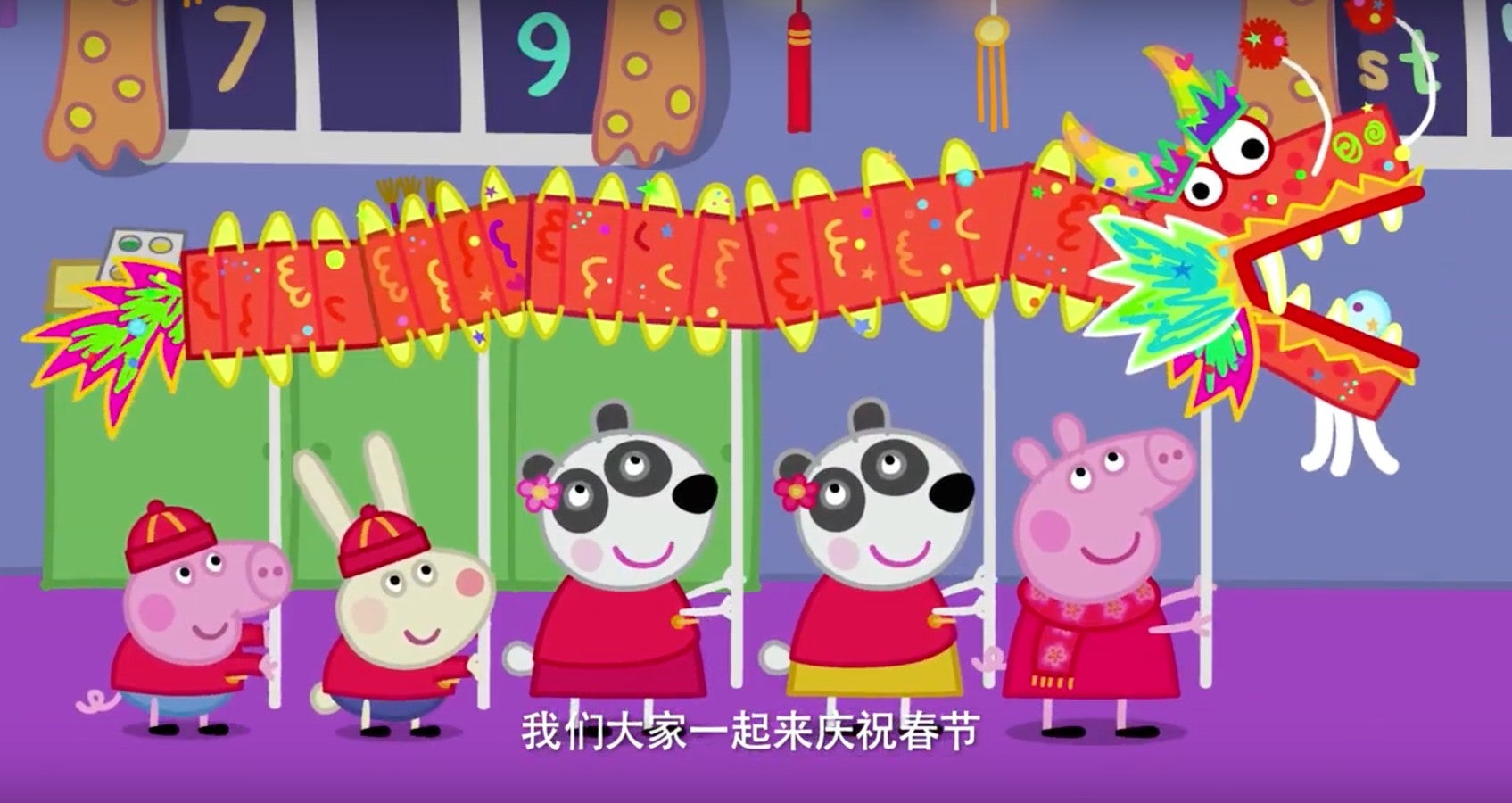The trailer for a Peppa Pig Chinese New Year movie is itself a stunningly moving short film
The British cartoon icon Peppa Pig is coming to China’s big screens next month in Peppa Pig Celebrates Chinese New Year, a feature-length film in Mandarin that will coincide with Chinese Lunar New Year and the start of the Year of the Pig.


The British cartoon icon Peppa Pig is coming to China’s big screens next month in Peppa Pig Celebrates Chinese New Year, a feature-length film in Mandarin that will coincide with Chinese Lunar New Year and the start of the Year of the Pig.
The movie, to be released Feb. 5, is a co-production of Canada’s Entertainment One (which owns the rights to the Peppa Pig franchise) and China’s Alibaba Pictures. It tells the story of two Chinese children and Peppa—a muddy-puddle-loving anthropomorphic pig—celebrating the holiday with their families.
An animated teaser trailer for the feature revealed that the movie will incorporate traditional Chinese customs into its storyline, like Chinese New Year dragon dancing. But it was the film’s official trailer, a five-minute video called “What is Peppa 啥是佩奇” that resonated most with audiences.
A short and moving film in its own right, it tells the story of an elderly farmer in rural China and his determination to procure a pei qi or “Peppa” as a gift for his grandson. The only problem is that he has no idea what a “Peppa” is. So he sets out upon a rather daunting journey to figure it out.
Directed by Alibaba Picture’s Zhang Dapeng, “What is Peppa” is deeply emotional for a promo on a movie made for pre-school-aged children, addressing how generational gaps, urbanization, and technology impact families. It has nothing directly to do with the actual film plot, but is a delightful, moving tribute to grandfatherly love.
And it demonstrates an innovative and effective way a foreign brand can introduce itself to a Chinese audience (in stark contrast to Dolce & Gabbana’s disastrous episode last year). Twitter user Connie Chan highlighted this point in a thread:
The promo was a huge hit with Chinese audiences: In addition to millions of views across streaming platforms, the hashtag #WhatisPeppa stacked up over 1.45 billion views on the microblogging site Sina Weibo as of Tuesday, the Financial Times reports (paywall). The trailer has proved so affecting that in the week since it was released, merchandise inspired by it has surfaced:
“What is Peppa” is also a much-needed makeover for Peppa Pig, who was banned last year by Chinese state media from Douyin, one of China’s biggest streaming platforms, after becoming an unlikely symbol of rebellion. Images of the pig, tattooed and wearing heavy gold chains, spread on social media, associating the cartoon’s likeness with a shehuiren, a Chinese slang term for “gangster”
Peppa, first created by three underemployed animators in 2000, has grown to a franchise that brings in more than $1 billion a year, its Canadian owners said in 2016, and was on track to being a global brand worth $2 billion. In December, Alibaba’s Tmall named Peppa a “super brand,” on the e-commerce platform.